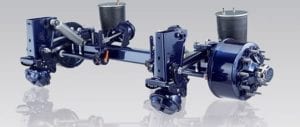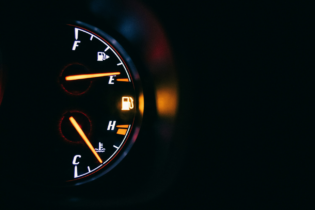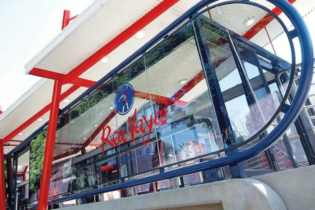BPW Axles South Africa’s managing director, André Cilliers, tells Transport World Africa why being expensive gives his company the edge.
“Our axles and running gear are the most expensive in the market,” he says proudly. “But we sell low cost of ownership – the guiding principle behind the brand.” Cilliers understands that companies prepared to pay a premium have higher expectations and concedes the pressure is on to provide premium-level product support and above-average end-user focus. While the company prioritises transporters, it doesn’t sell anything to them directly. “We spend a lot of time with them because they create a ‘pull effect’ for us, by specifying our products when commissioning trailers,” he explains. He says BPW Axles is a mobility partner to transporters and a system partner to trailer builders. Diversification comes from its aluminium wheel, mudguard, superstructures and associated trailer component arms. Parts are sourced from Europe, either from independent groups or specialist companies within the BPW group. Most of the listed transport groups, as well as many private operators (from small to very large) support BPW. “The mobility of a transport fleet relies on spare parts availability and a national distribution network – two areas in which we excel. We have a call-out team that is available, nationally, and a widespread network of parts distributors has been formed throughout Southern Africa,” he says. In addition, a full-time team travels to transport operators, independent workshops and parts distributors, from Dar es Salaam in Tanzania to Cape Town and across the continent’s east-west axis, to provide maintenance training. Focus points include trailer and/or running gear maintenance, disc brake operation and spare parts identification. Practical demonstrations are also given. Cilliers says BPW South Africa’s market share has grown to around 30% and estimates that more than one in five trailers of the estimated 180 000 registered on South Africa’s e-Natis system are equipped with its axles.Numerous players offer alternatives and/or copied axle designs and several trailer builders offer a choice of axle origin. It has, however, been proven many times over that they do not match the durability, low cost of ownership (through less maintenance), flexibility of application, and in many cases, the weight advantages of the BPW product range.
“We have superior ‘pre-sale’ service and our engineering – specifically our application engineering capabilities – are market-leading. We receive a knock on the door whenever something requires special attention and technology. We use a modular system that allows us to create a solution for whatever purpose is required,” he explains. “I don’t know of any Performance Based Standards (PBS) vehicles on the road today not operating with our running gear,” he states. Supplying PBS vehicles means providing a certain type of engineering support and simulation to confirm several performance characteristics. Being one of 50 subsidiaries of a German parent company, established in 1898, affords the company a premium, well-engineered perception. This is backed up on the ground by an extended three-year/unlimited kilometre warranty on its running gears. The company is ISO 9000 listed and is audited by an international company. Cilliers says the company has taken significant steps to eliminate the possibility of human error creeping into its assembly line. Among other mechanisms, it uses specially developed computer software and cameras to inspect components before they leave Johannesburg. The company will launch Eco Plus 3 this year, a new axle for single-wheel applications, which Cilliers describes as a running change to the popular Eco Plus 2. “The Eco Plus 3 has been operating in South Africa in a refrigerated fleet for two years already, under our parent company’s surveillance. This is common practice for BPW because our operating conditions are far removed from those in Europe.” The Eco principle means that brake shoes can be replaced (religned), without stripping bearings, while the hub and wheels all come off simply by removing a single nut, much like the system used on a Formula One car. This radically speeds up servicing time, while reducing repair complexity. All BPW axles are built with a positive camber, so that once a load is added, the wheels are straightened. “This is why we spend so much time with transporters. With a small toe-in, vehicle stability is improved and there are benefits to tyre life and fuel consumption, too,” he concludes.






